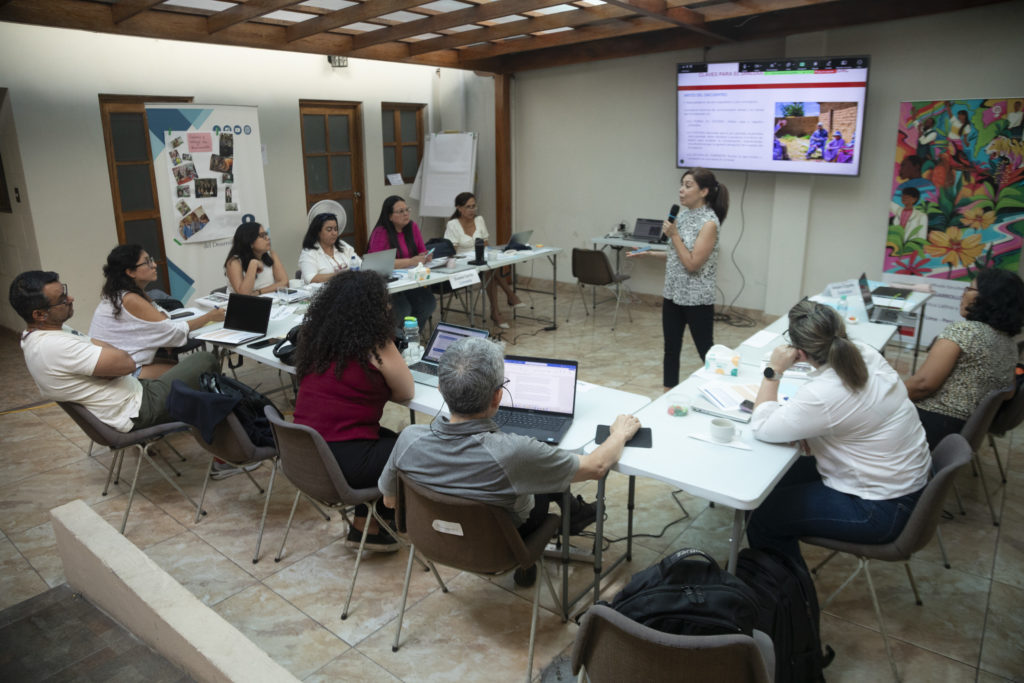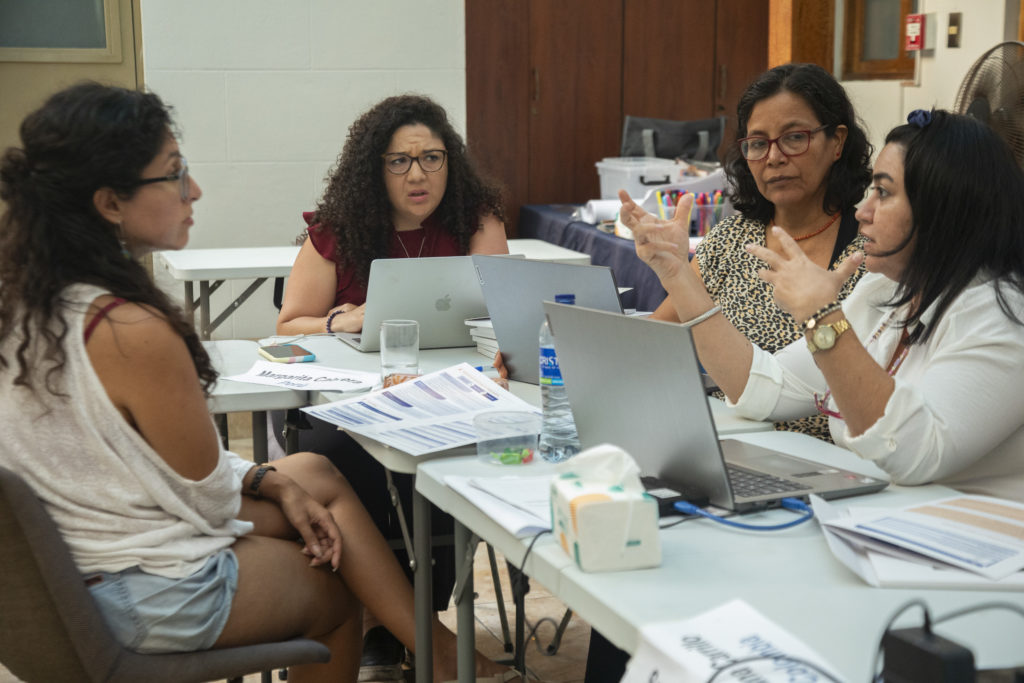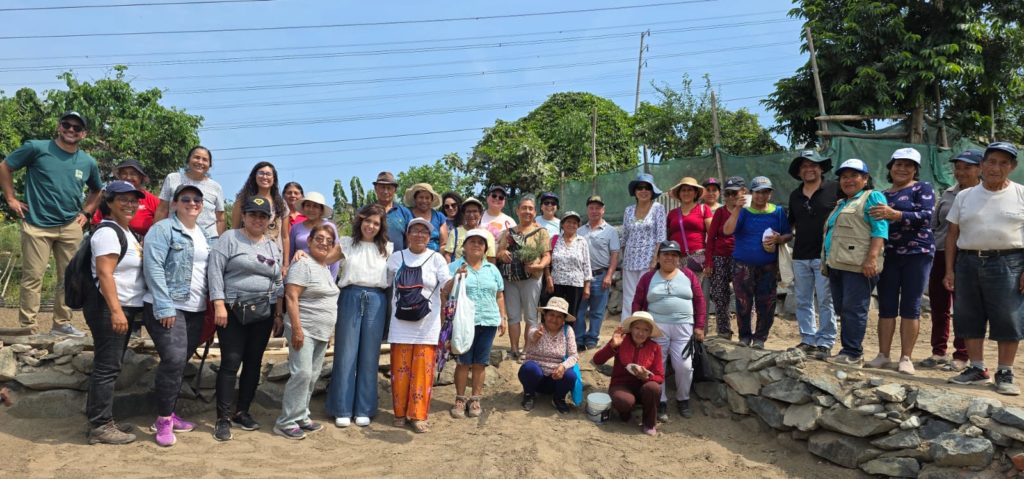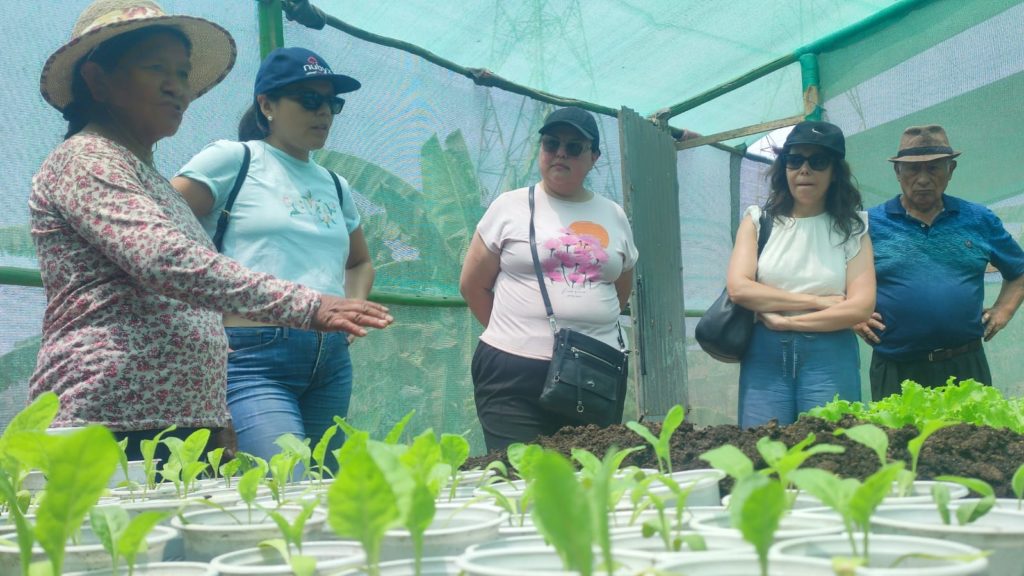The closing workshop of the CAS in Gender and Development brought together participants from across Latin America to reflect, share experiences, and apply tools for transformative action.
Between 28 March and 5 April 2025, the first module of the Gender and Development programme concluded with a dynamic workshop designed to deepen participants’ skills in gender mainstreaming across key stages of the project cycle (PCM).
Bringing together 15 participants from Peru, Ecuador, and Colombia, the workshop combined in-person sessions in Lima with a hybrid format that allowed remote participation. This flexible approach enabled greater inclusion and accessibility, particularly for those facing geographical or time constraints.


Over several days, participants explored practical tools and methodologies for integrating a gender perspective throughout development projects — from planning and monitoring to evaluation and knowledge management. The sessions offered interactive materials, group discussions, and collaborative spaces for reflection.
A highlight of the workshop was the field visit component, designed to apply learnings in real-world contexts.
In Lima, participants visited the project “Maintenance of the gardens managed by the network of organic farmers in South Lima” in Villa María del Triunfo. There, they met with 25 coordinators and representatives managing community gardens that support 160 producers living in vulnerable social, economic, and environmental conditions. The exchange offered valuable insights into the challenges and opportunities for gender-sensitive approaches in community-based projects.


The workshop also featured a virtual field visit, enabling participants to engage with women leaders, local authorities, and project partners involved in the “Women of Water” initiative implemented by Descosur. This project supports women’s leadership and active participation in natural resource management, focusing on water quality and sustainability.
Both field visits sparked rich discussions and reflections on the practicalities of applying a gender-transformative approach in diverse development settings.
Participants left the workshop with strengthened skills, practical tools, and renewed motivation to promote gender equality in their respective contexts. The experience underscored the importance of peer learning, real-life application, and collective reflection in building capacities for more inclusive and equitable development.
For more information about the Executive Certificate in Gender and Development for Latin America and the Caribbean, visit our programme page.